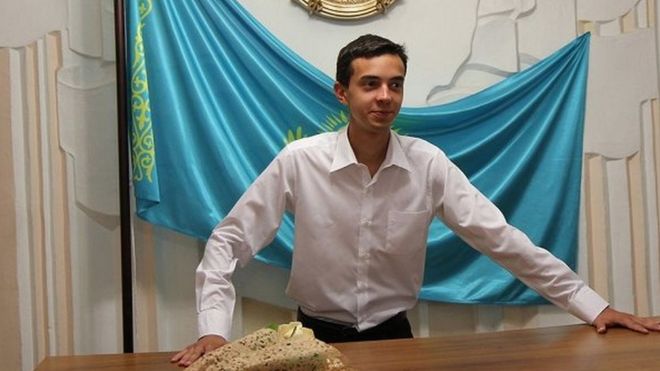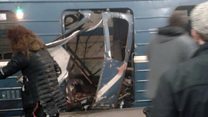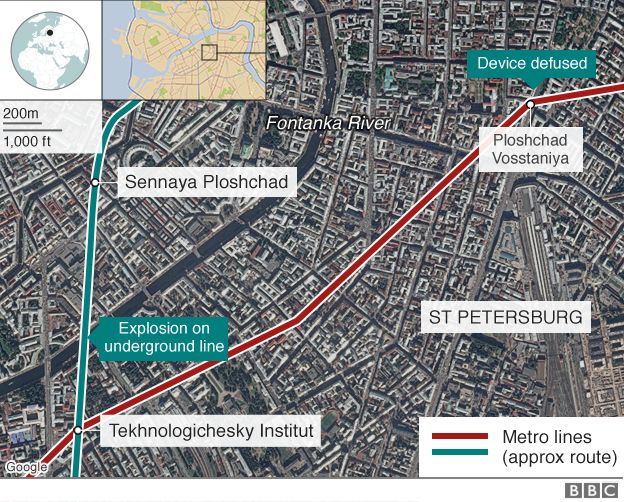 EMBASSY OF KAZAKHSTAN
EMBASSY OF KAZAKHSTAN
The first victims of the St Petersburg metro explosion have been named, as investigators continue to piece together the identity of the attacker.
Monday's blast between two stations killed 14 people and injured almost 50.
Investigators say it may have been a suicide bomb set off by a Kyrgyzstan-born man, Akbarzhon Jalilov.
Reports in Russia say one of the victims, Irina Medyantseva, died as she tried to shield her daughter from the explosion.
Ms Medyantseva, a 50-year-old doll-maker, reportedly died in an ambulance.
Her daughter Yelena, 29, was treated for her injuries in hospital and her condition is said to be stable.
Others victims include Dilbara Alieva, 20, from Azerbaijan, who was taken to hospital but later died from her injuries.
The oldest victim was Yuri Nalimov, 71, and one of the youngest was Ksenia Malyukova, 18, Russia's investigative committee reports (in Russian).
Kazakhstan's foreign ministry said one of its nationals, Maksim Aryshev, a 20-year-old student, had died. He was wrongly named as the bomber on social media on Monday.

Kyrgyzstan's security service named the suspect as Akbarzhon Jalilov, who was born in the Kyrgyz city of Osh in 1995 and had obtained Russian citizenship.
His name was later confirmed by Russian investigators, who said he also planted a second bomb that did not explode.
No group has said it was behind the bombing.
A city on edge: By Sarah Rainsford, BBC News, St Petersburg
 EPA
EPA
The metro here is open again, but passengers heading into the stations at the heart of the attack pass a huge pile of flowers. People here at Sennaya Ploshchad have been adding to the shrine all morning, leaving notes and stuffed toys and lighting candles.
This is a city trying to get back to normal, but there is deep shock at what's happened.
I spoke to women in tears. One told me she felt she had to bring flowers because this attack was so awful, and her mother was horrified at how random the killing was. "Everyone I know is fine," Irina said. "But it could have been any one of us."
There were bomb scares on the metro system again this morning, and several stations were closed and cordoned off as security teams moved in. It is another sign that this is a city on edge now.
The blast occurred on Monday afternoon after the train had left Sennaya Ploshchad station.

Senior investigator Svetlana Petrenko told Russian media the train driver's decision to continue to the next station, Tekhnologichesky Institut, had almost certainly helped save lives, as it allowed people to be rescued quickly.
Train driver Alexander Kaverin told reporters: "I just followed the procedure. You will know that this isn't the first terrorist act that we've had, there've been explosions before, so smart people came up with smart procedures.
"And these procedures say that in this situation I had to take the train to the nearest station. This is what I did. The train kept moving. There was a bang and lots of dust, but the train kept on moving."
The discovery of an explosive device at another station, Ploshchad Vosstaniya, on Monday also suggested a co-ordinated attack.
Both Mr Kaverin and another employee who found the unexploded bomb would be rewarded for their actions, metro officials said.
Europe
Hungary passes bill targeting university
- 4 April 2017
- Europe


No comments:
Post a Comment